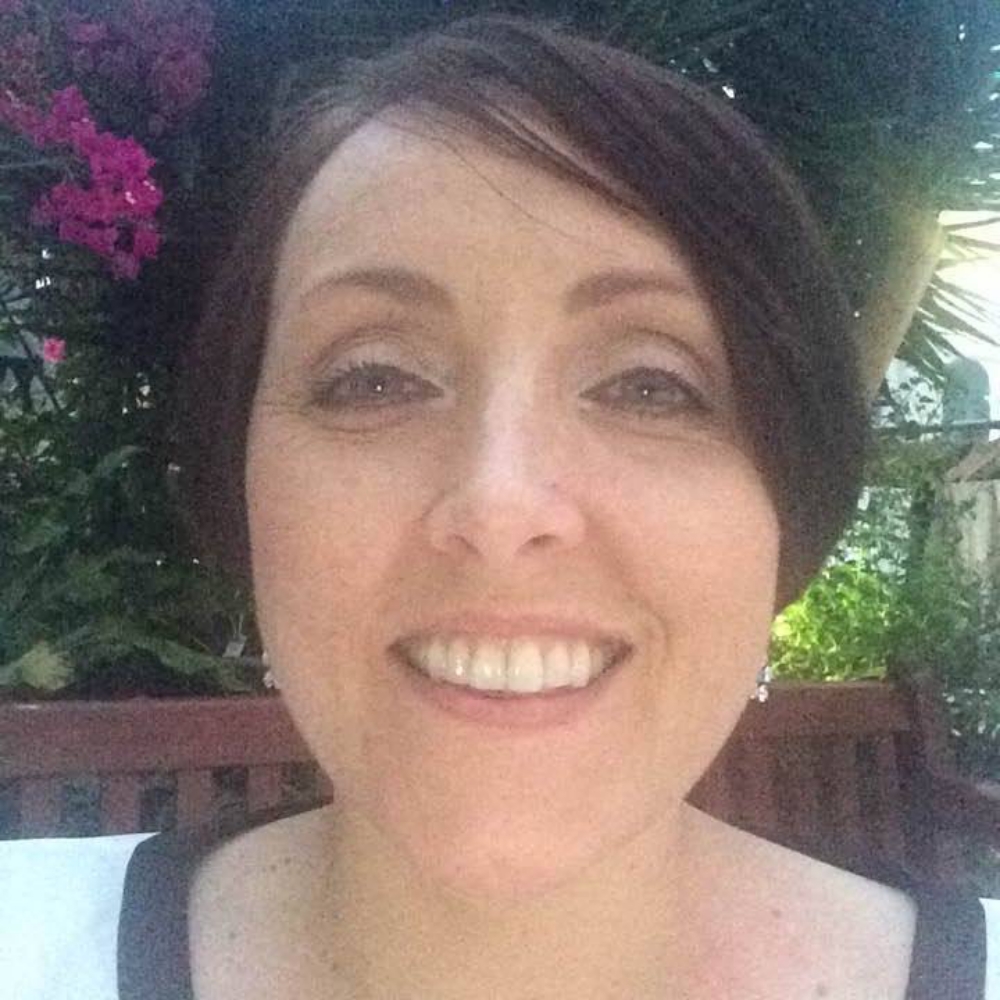Nikki Gray was originally diagnosed with ovarian cancer in 2016. She completed a chemotherapy regimen and was told she was cancer-free. So when nausea and abdominal pain began to plague her a couple of years later, she didn’t immediately think it might be cancer again.
Instead, the 52-year-old intensive care nurse thought it was likely spicy food that was causing her so much pain.

“I had gone back to work part-time and was getting on with my life,” Nikki says. “I’d changed to a vegan diet and felt really well, but I started to get acid reflux, nausea, intermittent abdominal pain, and feeling full. I thought maybe it was because I was eating a spicy diet, but after four weeks of changing what I ate it made no difference.”
Luckily, however, Nikki had the right tests done. She went to her oncologist, who ran a blood test and a CT scan and determined that her ovarian cancer had indeed returned.

“I used to be very active, a gym-goer, an advanced scuba diver who enjoyed rambling and traveling to far-flung places,” Nikki says. “This has changed now that I don’t have much energy, but I am so pleased that my treatment is working and that I can help to raise awareness of this disease which affects women of all ages.”
Article continues below
Our Featured Programs
See how we’re making a difference for People, Pets, and the Planet and how you can get involved!

Nikki started chemo again in January and will be participating in a clinical trial as well. So far, she is responding well to the treatment.
“I’ve found it really hard this time, suffering the cumulative effects of treatment,” Nikki says. “I’ve been told that I’m treatable but not curable, and so I plan to move into my mum’s extension so that she can look after me when I feel unwell or have no energy.”

Nikki hopes that she can use her story to help encourage other women to look out for the symptoms of ovarian cancer. She says many women think their cervical smear test will detect the disease, but that’s not the case.
“Others confuse symptoms with irritable bowel syndrome or menopause,” she says. “Being forewarned is [being] forearmed so women can be their own advocate in getting help.”

Ovarian cancer is most treatable when it is caught early. If you experience any of the following symptoms, contact your doctor and ask about getting tested for ovarian cancer:
- Bloating that doesn’t come and go
- Eating difficulty or feeling full quickly
- Abdominal or pelvic pain
- Changes in urination or bowel habits
![]()
Provide Mammograms
Support those fighting Breast Cancer at The Breast Cancer Site for free! →
Whizzco Source






